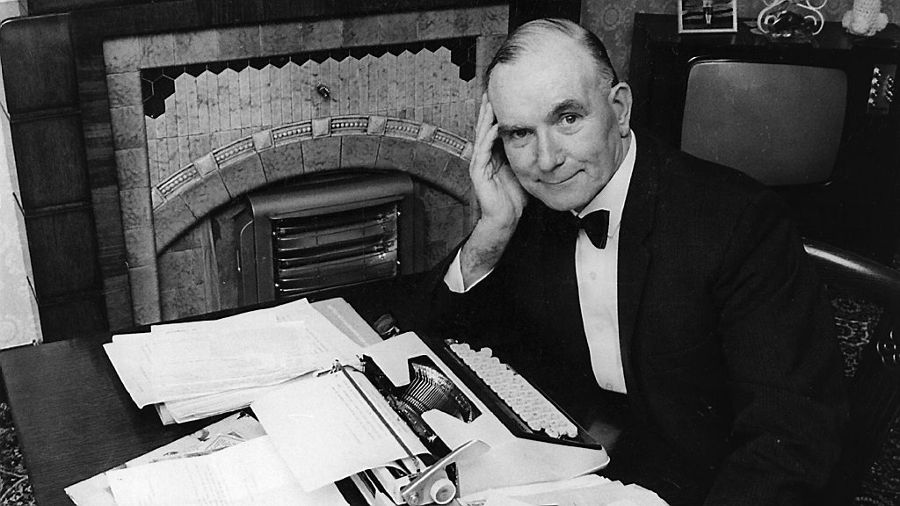IF you’re not on Facebook, or if you left it before it got uncool – or even if you just have a healthy sense of perspective when it comes to social networking – then you may be sickened to learn that my dog is on it.
To be fair, it’s because he doesn’t have much to do all day, so he logs on and updates his status with, “They don’t walk me enough”. Then he ‘likes’ his own post. He has friends I’ve never met, even though, as a dog, he doesn’t call you a real friend until he’s had a good long sniff of the business end of you. (Even dogs don’t have real friends on Facebook.)
So the dogs in the street know Facebook is habit-forming, but it appears it’s worse than that – it’s addictive. A survey this week concluded (or, I suppose more accurately, leapt to the conclusion) that Facebook is more addictive than alcohol. Researchers from the University of Chicago found that the temptation to check in with Facebook is harder to resist than the temptation to have a drink.
This came as a shock to some people. “What?,” we cried, throwing back another schooner of Shiraz while simultaneously posting a photo of our lunch, “You’re supposed to resist?”
Of course Facebook is addictive – to a certain sort of person. Answer yes to any of the following questions to see if you fit the profile. Do you enjoy looking at other people’s holiday snaps? Do you regard clicking the ‘Like’ button as a form of social activism? Do you get improbably furious about minor changes to an interface? Do you like to share inspirational quotes with your friends? Do you mind not playing fast and loose with the word ‘friends’?
Don’t be deceived by the condescending tone. Most Facebook users don’t fit that profile, and yet we keep using it anyway – at least for now.
Facebook is useful for some things – staying in touch with an uncle you don’t see often enough; spying on your ex’s partner and your partner’s ex; gathering tangible reminders of why you never liked so-and-so; and keeping your mental arithmetic sharp, as you calculate from time to time just how many people would be left if you unfriended everyone who doesn’t even try to be funny…
The world’s biggest social network announced an IPO this week in which it intends to raise $5bn. It’s a peculiar bit of timing, though, since everyone who was going to join Facebook must surely have joined it by now (except for everyone in China, obviously), and the rest are starting to leave. It has more than 800 million users worldwide, of whom around two million are in Ireland. And if you can believe what they write on Facebook at least, they are tired of it already.
There are several reasons for this, although Facebook’s dubious privacy policy is not the main one. Seriously – ‘I’m knowingly and without coercion publishing videos of my baby/ my cat/ the cake I just made/ me and my friends with our tongues sticking out… But privacy is a top priority for me. It really is.’
In any case, there are ways around the privacy problem. You can always quit, although Facebook does make that very difficult: when you try to deactivate your account, it shows you photos of your friends looking all lonely and hollow-eyed, as if you’d died. “X will miss you,” it whines.
Alternatively, you can pretend to be someone else. For instance, if you take ten years off your age on Facebook, suddenly you’re no longer shown advertisements for an ‘instant brow lift’, which is some sort of sellotape that holds your eyelids up. The relief of that. It’s like being ten years younger in real life.
No, the main problem with Facebook is not data collection, or targeted advertising, or even the loathsome new ‘timeline’. It’s the blandness.
Perhaps conscious that employers or other influential people might look them up on Facebook, people are afraid to say anything controversial. Instead they post smug updates on their latest triumphs (damn them and their triumphs) and click ‘like’ repeatedly while the tributes flow in: Congrats, yay, XOX.
They’ve just climbed a mountain, but it’s always some secondary local hillock – never Kilimanjaro. They’ve just had a baby, but it’s always one baby, safely, under medical supervision – never octuplets in a blizzard.
Even Pancho, bless him, is only a Jack Russell and not something fascinating like a Weimaraner. And he never rescues Little Timmy from a mineshaft; all he ever does is find something unspeakable and roll in it. LOL, says everyone, obligingly.
Facebook, it turns out, provides nothing more than a safe environment in which to be as boring as anyone else, which makes it a lot like real life.
Published in the Irish Mail on Sunday, 5 February 2012




